Email Link: nelsonbrinckerhoff@gmail.com
With 38 years experience, my focus is on quick and fair representation and resolution of your interests. I will fight aggressively to protect you. Landlords always take a chance on their tenants. You hope they will pay the rent and take reasonable care of the premises. It doesn’t always work out. The RI Residential Landlord and Tenant law tries to be fair to both sides. It is statutory and judges strictly enforce what is says and what it doesn’t say. A successful eviction involves close adherence to the exact wording of the law and savvy dealings with tenants, judges, and opposing counsel to get you out of a losing situation. While it is possible to evict someone without a lawyer, it is very easy to not follow the law strictly and have to start all over again. A non-paying tenant eviction really proves the maxim that “Time is money.”
Every day of lost rent creates a bigger loss for the landlord. Starting over after failing on a technicality in court is expensive in lost rent and increased fees.
I also do commercial evictions. It has slightly different rules.
My advice is to get a lawyer unless you really know what you are doing.
Some general info:
A non-Rhode Island ( non-resident landlord ) must record his or out-of-state status with the Rhode Island Secretary of State and municipality in which the rental property is located, or it could adversely effect your rights in court.
How much can I charge for rent?
Rhode Island does not have any statewide rent restrictions, therefore landlords may charge what the market will bear. However, local municipalities may impose rent control in specific districts, so landlords should always make sure that they check the local laws affecting their municipality.
How much may I accept as a security deposit? The security deposit, however denominated, may not exceed an amount greater than one month’s rent.
For example, a landlord may not collect one month’s rent for a damage deposit in addition to a half month’s rent for a pet deposit; rather, landlords are restricted to a total deposit of one month’s rent. However, there does not seem to be a set penalty although the lease may be declared illegal if an excess security is demanded in the lease. At any rate, do not let a tenant get too far out in arrears. Remember it’s a business relationship, and you are not the patsy.
Can I require my tenants to obtain renter’s insurance? Landlords may require tenants to obtain rental insurance and if provided in the lease may make the failure to do so a breach of the lease.
My tenant has moved out. What do I do with their security deposit? In Rhode Island at termination of tenancy, the security deposit due to the tenant shall be the entire amount previously given, minus any unpaid accrued rent as well as the cost of physical damages to the premises, other than ordinary wear and tear. This should be itemized by the landlord in a written notice to be delivered to the tenant.
The landlord shall deliver the notice, together with the amount of the security deposit due within 20 days of either termination of the tenancy, delivery of possession, or the tenant’s providing the landlord with a forwarding address for the purpose of receiving the security deposit.
What is a common problem where security deposits are concerned? A common issue amongst landlords regarding security deposits is charging for items that constitute normal wear and tear. Landlord should keep in mind that charges and/or deductions may only be made for items that are considered as damage beyond normal wear and tear.
May I charge an application fee, late rent charge or a returned payment fee? There are no statutory limits placed on late fees and/or application fees in Rhode Island. However, reasonable cost should always be kept in mind when instituting any charges and the landlord should be fair when assessing such fees. Landlords may not charge a tenant a fee that exceeds the amount of $25.00 for a returned check.
How can I terminate a Rhode Island lease?
A fixed term lease is a lease that contains a beginning date and an end date. Under Rhode Island statute, a fixed term lease requires 90 days notice prior to lease expiration unless otherwise stated.
A periodic lease is a lease that continues from period to period (i.e. month to month). In Rhode Island, a periodic lease will usually continue until either a landlord or tenant gives the other notice of:
-10 days prior to ending a week to week agreement
-30 days prior to ending a month to month agreement.
Are there circumstances where I am required to release a tenant from a lease? In Rhode Island if a U.S. Military Service member receives orders for a transfer, the landlord is obligated to release the tenant from the lease. Additionally, if a landlord violates the lease, a tenant may seek to be released from the tenancy. Additionally, a landlord is required to release a senior over the age of sixty-five when there is a need for placement in an assisted living situation or nursing home. There are specific requirements for this as set out in Rhode Island landlord tenant law § 34-18-15.
My tenant was supposed to be out of the apartment and he is still there. What can I do? This situation is often referred to as “holdover” tenancy. Under these circumstances, a landlord may file for eviction.
I also have experience with non-tenants ( relatives who are now persona non grata, squatters, no lease, no rent, etc.) who are nothing more than “occupants” who not under the normal residential laws. Those cases can be quite technical evictions with which the police will not intervene as you might hope.
How do I start an eviction?
Eviction for Failure to Pay Rent: After 15 days from the time rent is due, the landlord can deliver a written notice demanding payment in 5 days or the lease will terminate. The landlord can then file an action with the local district court.
Eviction for Failure to Abide by Rental Agreement: If the tenant fails to abide by the rental agreement and the breach is substantial, the landlord may deliver a 20 day written notice to the tenant pointing out the specific problem and what the tenant must do (make certain changes, repairs, payments, etc.)to remedy the situation. If the tenant does not eliminate the issue by the 21st day, the landlord can file an action with the local district court.
Please note If the same violation re-occurs within 6 months, the landlord can simply end the rental agreement with a 20-day written notice, specifying the breach and the termination date. No allowance for time to make changes, repairs, payments, etc., is required in this situation.
Eviction for Illegal Activity: No advance notice prior to filing for eviction is required if the violations involve illegal narcotics, other controlled substances, any crime of violence in the rental unit or on the premises, or if any of these activities occur on adjacent public property and the tenant is proven to be involved. In such a case, the landlord can file an immediate eviction complaint at the local district court.
Squatters, as described above, require a short written notice to leave, then a court suit.
My tenant wants to pay only part of the rent he owes? I have already started eviction proceedings; should I accept the partial payment?
Accepting payment whether full or partial, waives the landlord’s right to proceed and evict the tenant unless a non-waiver agreement is signed.
My tenant signed a one year lease and has been evicted after only 4 months. I have not been able to find a replacement. Is the tenant responsible for the balance of the lease term? This is commonly referred to as “accelerating the balance of the lease”. This is permissible but not commonly practiced in Rhode Island but the landlord is obligated to mitigate damages. Mitigating damages means that the landlord must do everything within their power to re-rent the available apartment.
Can I make my tenant responsible for attorney fees and court costs? In Rhode Island, attorney fees and court costs may be recovered if specified within the lease agreement and in certain other situations.
How long does the eviction process take? As with any legal matter, exact timing is almost impossible as it depends on many factors. Overall, with no complications, the eviction process usually takes about 30 days.
Do I have to give the tenant notice before I enter the rental property? The landlord shall have the right to enter the leased premises at reasonable times and hours, only after reasonable written or verbal notice (48 hrs) has been given to the tenant, unless in cases of emergency.
Call me 884-1962 Attorney Nelson F. Brinckerhoff



